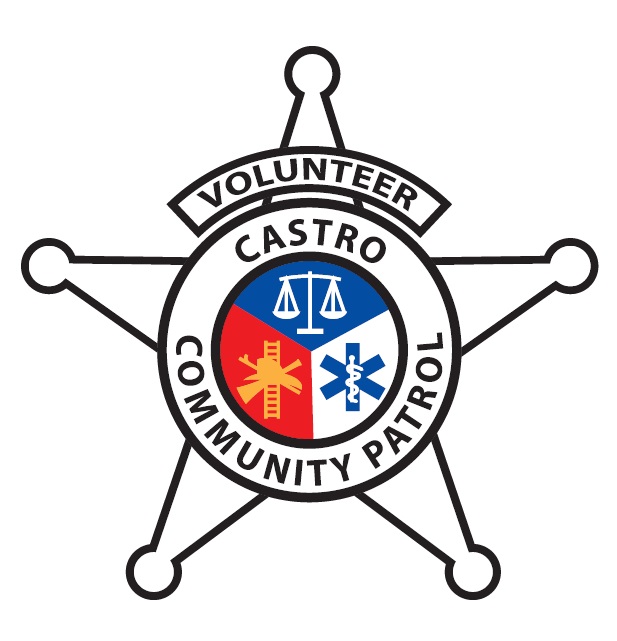ARE YOU CONCERNED ABOUT A LOVED ONE OR SOMEONE IN THE NEIGHBORHOOD?

We recognize that the LGBTQ+ community as a whole is consistently the target of unfriendly speech, prejudicial legislation, harmful rhetoric, and occasionally violent acts by individuals or groups. In an effort to help train, prepare, and protect the Castro neighborhood and the broader LGBTQ+ community we have developed a three-pronged approach:
- TRAIN – where we provide safety training in a variety of topics to the community
- PREPARE – where we provide information, guidance, and referrals to help businesses and nonprofits develop Violence Prevention Programs, Risk Assessments, Emergency Response Plans and so on.
- PROTECT – where we work in a multi-agency collaboration to identify, investigate, and respond to threats and concerns in a constitutionally legal and proportional way.
We are in the process of developing a key part of our PROTECT strategy by creating the Castro Neighborhood Behavioral Threat Assessment and Management (CN-BTAM) program, that we believe is the first in the Nation to operate at the neighborhood level.
Behavioral Threat Assessment and Management is the systematic process of investigating and assessing concerning behaviors. The primary goal of CN-BTAM is to evaluate the difference between one or more people making a threat; and one or more individuals actually posing a likely threat to an individual, business, or to the neighborhood or community at large.
BTAM principles and concepts were developed at the National and State levels by the Department of Homeland Security, the United States Secret Service, the Department of Justice Federal Bureau of Investigation and by most State governments to address school and workplace violence and mass shooting incidents. Most State governments, many State and private colleges, and many large employers develop BTAM teams as part of their workplace violence prevention program. BTAM teams are comprised of a diverse and multi-disciplinary group of individuals who receive and assess initial threat reports in a strictly confidential setting. If a threat report is considered legitimate, the team then builds a management plan to leverage inter-agency support and resources to help mitigate the possible threat and support the safety of both the individual of concern, and the entire community.
BTAM teams can assign case-workers or social workers to provide assistance and support to help individuals in need through a difficult time. They can make local, State, or National resources available to individuals when that is necessary. When necessary, they can also engage formal Law Enforcement to take over cases which pose a likely and real threat to the individual or the community as a whole. The focus of the BTAM process is to recognize individuals who may be “struggling” and to support them with resources and assistance to prevent them harming themselves or others in the future.
.
We are in the process of BUILDING our CN-BTAM team and program so it is not functional yet, however to report a person or persons of concern in the meantime please use our CONTACT US option be sure to include all of the relevant details we would need to consider.
We are not a crisis line. In case of emergency, contact 911 or 988 immediately.
.
About The CN-BTAM Team
CN-BTAM team is based on the concepts and principals discussed in the Bay Area Urban Areas Security Initiative publication BEHAVIORAL THREAT ASSESSMENT AND MANGEMENT.
CN-BTAM team members are all unpaid volunteers who commit their time, experience, knowledge, expertise, and energy to helping individuals and the Castro and LGBTQ+ community at large. Team members come from many different backgrounds and disciplines such as:
- Youth / Adult Protective Service Agencies
- Counselling Service Agencies
- Medical Professionals
- Religious Organizations
- Law Enforcement Organizations
- Nonprofit Groups
- Business Entities
The BTAM team meets only when a report is received with enough details and information to allow a formal assessment to be conducted. All information received by the BTAM team, and all decisions and referrals made by the BTAM team remains strictly private and confidential and are NEVER shared with the media or members of the public.
If you have a commitment to helping others and improving the safety and well-being of the Castro Neighborhood and the LGBTQ+ community as a whole, and if you would like to serve as an unpaid member of the CN-BTAM team, please feel free to reach out to us for an interview and consideration.
How Do I Report A Person or Persons Of Concern To CN-BTAM?
We want to help.
To report a person or persons of concern to CN-BTAM please use our CONTACT US option be sure to include all of the relevant details we would need to consider.
In case of emergency, please contact 911 or 988 immediately.
.
What Happens After I Report?
After your initial report, we will reach out to you to obtain additional details and information needed to provide the CN-BTAM with enough to conduct their initial threat assessment.
A CN-BTAM liaison will provide you with regular updates on the status of your report while maintaining the confidentiality and constitutional rights of the individual / individuals of concern.
The CN-BTAM team will, if deemed necessary and appropriate, refer the matter with as much detail and information as necessary to our inter-agency partners with recommendations for case-management or case-investigations.
As the reporting party, you may not always find out the details of the CN-BTAM assessment or subsequent mitigation efforts by our agency partners due to privacy and Constitutional requirements. We understand this may be frustrating, but the confidential nature of the BTAM process and decisions is essential for the process to work effectively.
.
Why Should I Report A Concern?
Left unreported, uninvestigated, unmitigated, and unchecked, some extreme behaviors may eventually lead to severe, potentially violent outcomes for the individual, their family, and society.
In after incident investigations by law enforcement, following many violent incidents and mass shootings, investigators often find friends, family members, or colleagues of the perpetrator who were aware of their troubled conduct, beliefs, behavior, or changes in personality, but they dismissed these and did not bring them to the attention of anyone.
The CN-BTAM process will independently assess and investigate all reports to determine their voracity and legitimacy before recommending mitigation steps. The Reporting Party will be contacted by CN-BTAM liaisons, but your identity will be kept as private and confidential from the individual or individuals of concern.
.
We Are Not Here To Judge, We Are Here To Help





